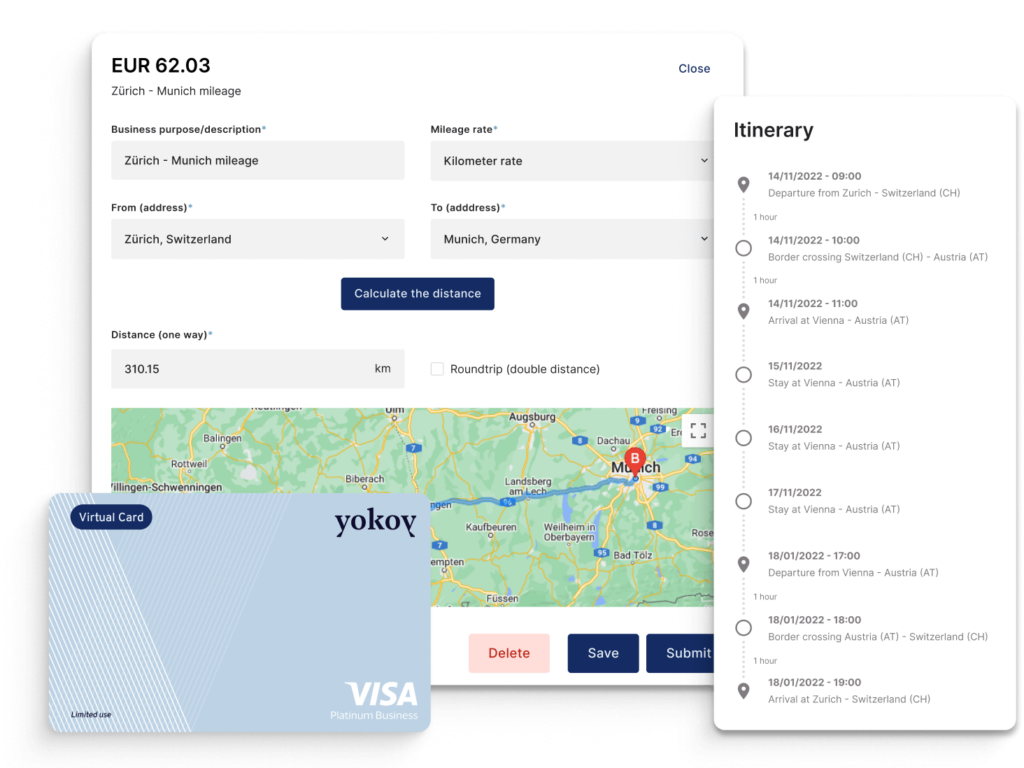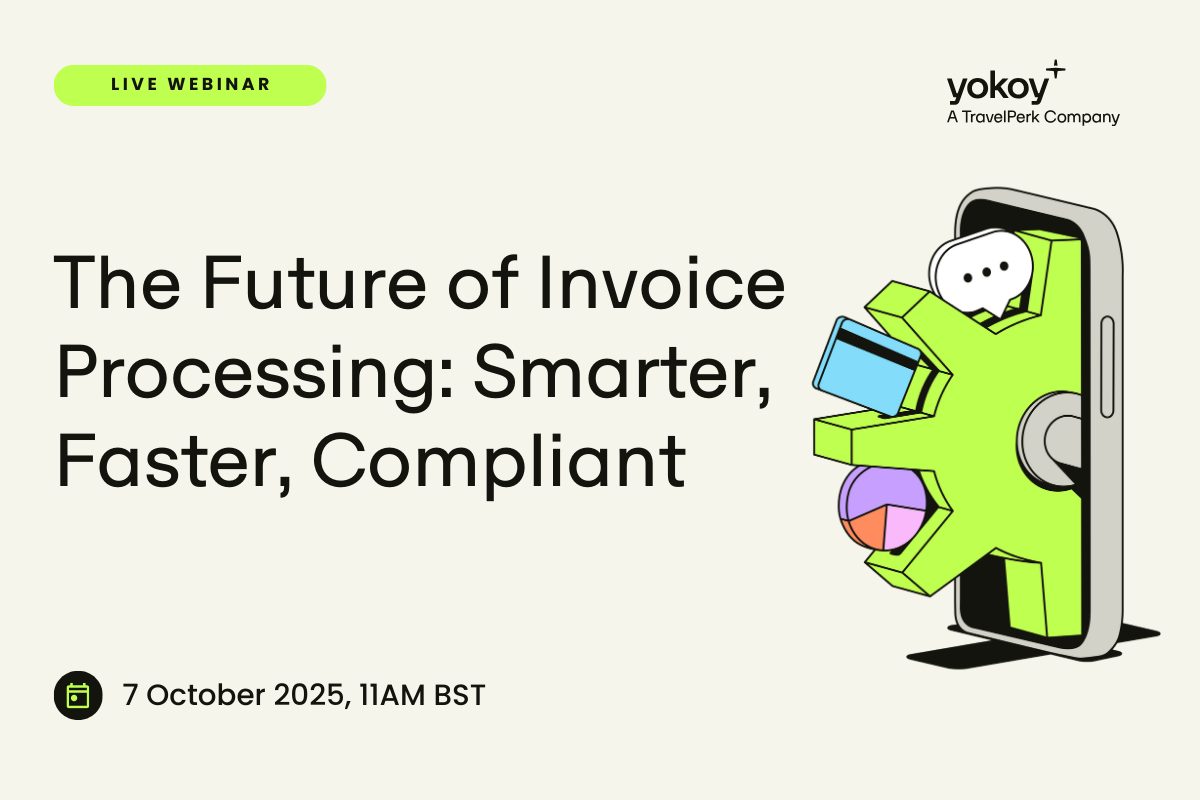Home / Preventing Expense Fraud with AI-Driven Risk Management
Preventing Expense Fraud with AI-Driven Risk Management
- Last updated:
- Blog

Expense fraud is the hidden drain on a company’s bottom line: According to recent statistics, businesses lose an average of a staggering £6,600 in financial loss per month. The need for advanced solutions has never been greater. That is why artificial intelligence is considered a game-changer for expense management: It’s a crucial move to protect your company’s financial health and streamline expense reporting for the future.
What is expense fraud—and why should you care?
Sometimes, humans are chaotic and jolt down the wrong numbers. But more often than not, employees commit expense fraud by submitting false or inflated claims on their expense reports, typically with the goal of getting reimbursed for non-business-related or exaggerated costs.
The most common types of expense fraud are:
Mischaracterised expenses: personal purchases claimed as business-related
Exaggerated expenses: inflated legitimate expenses
Duplicate expenses: the same expense is submitted more than once
Fictitious expenses: claims for expenses that never occurred, submitting a family meal as a client dinner.
The Association of Certified Fraud Examiners (ACFE) reports that a typical organisation loses 5 per cent of its annual revenue to fraud each year (averaging £6,600 in losses per month). This is particularly hurtful for small- and medium-sized enterprises. Additionally, the ACFE found out that 51 per cent of businesses have seen an increase in fraud since the pandemic, and 71 per cent expect those fraud cases even to rise further. 65 out of 100 employees try to inflate business travel to get reimbursed for personal expenses.
As you can see, expense fraud — whether intentional or accidental — can severely damage your company’s financial health.
Challenges in traditional fraud detection
Traditionally, manual expense fraud detection presents several obstacles for companies. Let’s take a look at some of the key challenges organisations face when trying to prevent expense fraud:
Detection at scale is difficult/manual work overload: Manually reviewing hundreds of expense reports is time-consuming and prone to errors, making it hard for finance teams to catch all fraud. Sifting through receipts line by line is inefficient, especially for large volumes of data. Detecting fraud at scale becomes nearly impossible without automation.
Increasing fraud sophistication: Fraudsters constantly find new ways to bypass traditional detection methods, making simple checks and manual reviews less effective. Tactics like spreading fake expenses across reports or using realistic fake receipts can go unnoticed. As fraud evolves, companies need advanced AI tools to catch these subtle schemes and stay ahead.
Hard to detect across different channels: Businesses use multiple channels for submitting expense claims, from mobile apps, email to software platforms. This creates additional complexity, making it harder to track and verify datasets in real-time. Without effective data consolidation, fraud can slip through unnoticed.
Difficulty in customising to company guidelines: Each company has unique expense policies that employees must follow, but outdated fraud detection systems often struggle to adapt. Without customisable systems that reflect a company’s specific rules, finance teams may face false positives or miss real fraud. Customisation is key to accurate detection, though it can be difficult to implement with traditional methods.
Juggling multiple software solutions: Different software solutions are used to manage expenses, handle reporting, and detect fraud. This fragmentation and lack of integration create complications. Finance teams are left navigating between different tools to piece together datasets, which leads to inefficient workflows and increases the risk of errors.
Blog article
How to Choose the Ideal Expense Management Software: Requirements and Features
How to choose the best expense management software for your company size. Improve efficiency and save costs with the right expense tracking solution.

Lars Mangelsdorf,
Co-founder and CCO
AI-driven solutions for fraud prevention
The good news is that AI-driven solutions are addressing these challenges head-on. By automating the detection process, centralising data from multiple sources, integrating into existing systems and customising fraud detection to match regulatory guides, AI-powered expense management software offers a framework, to efficiently tackle expense fraud at scale. Let’s see how!
Automated data extraction
Automated data extraction is the process of capturing and digitising information from receipts and invoices without manual input. With the help of Optical Character Recognition (OCR) AI-powered automation can scan and pull the relevant details like date, amount, and vendor information directly from documents. This saves time and ensures accuracy by reducing the risk of human error. With automated data extraction large volumes of receipts can be processed fast, making it easier to stay on top of expense reports.
Data collection
AI-based solutions enable businesses to gather data from multiple sources: Whether it’s through mobile apps, email submissions, file systems or software platforms, these systems centralise the data in one place. This allows finance teams to access and analyse all expense claims in a unified overview or dashboard. This efficient data collection eliminates the need to piece together a patchwork of data from different platforms and provides a clearer, more comprehensive view of all spending activities of an organisation.
Real-Time data analysis
One of the biggest advantages of AI-driven expense management systems is real-time data analysis. Unlike traditional methods where expenses are reviewed after they’re submitted, smart solutions analyse claims as they come in, instantly flagging suspicious activities. This proactive approach allows finance teams to address issues immediately, stopping fraud before it escalates. On the other hand, the approval process for legitimate claims is accelerated, which helps employees get reimbursed faster.
Machine learning to detect fraud patterns
Machine learning is a game-changer and a huge help in spotting patterns of fraud: These algorithms learn from historical data and continuously improve their ability to detect unusual or suspicious behaviour. Machine learning models can identify patterns in employee’s expense reports. By continuous learning, machine learning algorithms become better at identifying such fraudulent patterns over time, making fraud detection smarter and more efficient.
Anomaly detection
Identifying deviations from the norm can be another powerful tool: Anomaly detection with AI can flag unusual activities, such as an employee suddenly spending much more than usual or claiming expenses from unexpected locations. The beauty of AI-driven anomaly detection is that it doesn’t rely solely on fixed rules. Instead, historical data helps to identify outliers and catches both obvious and subtle forms of fraud.
Built-in company policies
A company’s specific policies can be integrated into modern expense management solutions. This means the software can automatically check if an expense complies with a company’s regulations. For example, the maximum allowable amount for meals, specific travel guidelines, or reimbursement restrictions. This functionality reduces the burden on finance teams to verify regulatory compliance manually, and it ensures that all expenses align with company policies from the moment they’re submitted.
Customisable Workflows
Every business has its own processes for reviewing and approving expenses, and modern AI systems are built to accommodate this: Customisable workflows allow companies to tailor the approval process based on their unique structure. For instance, high-value expenses may automatically require additional approvals, while routine expenses can be fast-tracked for quicker processing. These workflows can be easily adjusted to any business needs.
Yokoy Expense
Streamline your travel and expense management
Say goodbye to manual data entry, lost receipts, and complicated reimbursements. Yokoy handles everything from start to finish, for simple T&E management at any scale.

Benefits of AI-driven expense management beyond fraud detection
Now, you have seen that AI-driven expense management doesn’t just help you to detect and prevent fraud; it also offers a wide range of powerful tools and benefits that improve your company’s financial operations.
Cost savings: One of the most immediate benefits of switching to AI-driven expense management solutions is cost savings. Automating tedious manual processes like data entry or approval workflows can be done easily with the help of AI. This cuts down on your administrative overhead, reduces errors and leads to direct cost savings from less need for manual intervention and fewer financial losses.
Increased accuracy: AI systems excel at extracting and processing data with high precision and are extremely fast-paced. By automating data entry and using algorithms to analyse expense reports, AI reduces the risk of human error, so costly corrections can be a horror of the past.
Improved operational efficiency: Solutions with AI integration can streamline your entire expense management process, from submission to approval. Repetitive tasks, like data extraction and expense categorisation, can be automated. This speeds up workflows and reduces processing times. This efficiency frees up your finance teams to focus on other activities to improve overall profitability.
Enhanced user experience: With expense reporting made simpler and more intuitive with AI, employees can easily submit expenses through user-friendly interfaces. For example, mobile apps that allow for instant receipt scanning and expense submission enhance the experience of an otherwise relatively boring task. On the backend, AI ensures that claims are processed quickly and accurately, reducing the hassle for your employees and making the reimbursement process much smoother.
Scalability: As businesses grow, so do their needs in expense management. Powerful tools with AI are designed to scale effortlessly with your company. Whether you’re managing expenses for a small team or a global workforce, AI models can adapt and learn to handle increasing volumes of data without a decline in performance. This scalability ensures that your expense management processes remain efficient while growing your business.
Higher employee satisfaction: When employees experience a smooth and efficient expense reporting process, their satisfaction improves. Not only does a user-friendly interface help your employees make a good experience, but AI-driven solutions also facilitate quicker reimbursements and reduce the time spent on administrative tasks. Fewer errors and disputes, which enhances overall employee morale and trust in the system. This will lead to a more positive experience overall.
Real-time data for better decision-making: With data analytics in real-time, AI expense management systems can give you up-to-date insights on spending patterns and trends. This enhanced visibility allows you to make more informed decisions. Organisations can quickly identify areas where costs can be reduced, or budgets adjusted. Your financial management and operational efficiency overall can be improved with such smart, real-time systems.
Best practices for implementing AI in expense management to prevent fraud
Now you know how AI-driven expense management can prevent fraud and improve your company’s financial health. Let’s put it into practice:
Build and train a fraud detection team
Build a dedicated fraud detection team that includes data scientists, financial experts, and AI specialists to tailor the AI system to your company’s needs. Continuous education on AI technologies and fraud trends is a key ingredient to keep your fraud detection team and your AI up to date. Also, collaboration with finance and compliance departments is crucial to ensure company policies are adhered.
Continuous data monitoring
AI thrives on real-time data, which helps to detect fraudulent activities ad-hoc. Continuous learning with ongoing data analysis helps the AI learn from past cases, enabling it to improve its fraud detection capabilities. Consistent feedback loops ensure that any anomalies flagged by the AI are reviewed and used to refine its accuracy.
Implement a holistic expense management software
Now, AI works best and most effectively if integrated into a centralised system that brings all expense-related data together. Software like Yokoy provides a fully integrated expense management platform, pulling data from receipts, invoices, and reports into one place. This allows Yokoy’s AI tools to spot inconsistencies and potential fraud quickly.
Automated and customised workflows make it easier for your finance team to manage approval processes, while built-in tools help ensure compliance with your internal rules. As your company grows, Yokoy grows with you and makes it easier to manage a larger volume of expenses without sacrificing accuracy or efficiency.
Next steps
Smart expense management tools can identify patterns of fraudulent claims by analysing vast amounts of data and flagging anomalies that traditional methods might miss. With Yokoy, you get a smart solution that leverages AI to improve your expense management processes.
Yokoy’s clients have reported substantial reductions in fraud cases, such as catching fake receipts and exaggerated expenses before they lead to financial losses. See, how Yokoy can help your business safeguard your resources and help to ensure compliance more effectively, by booking your demo today!
In this article
See intelligent spend management in action
Book a demoRelated content
If you enjoyed this article, you might find the resources below useful.


